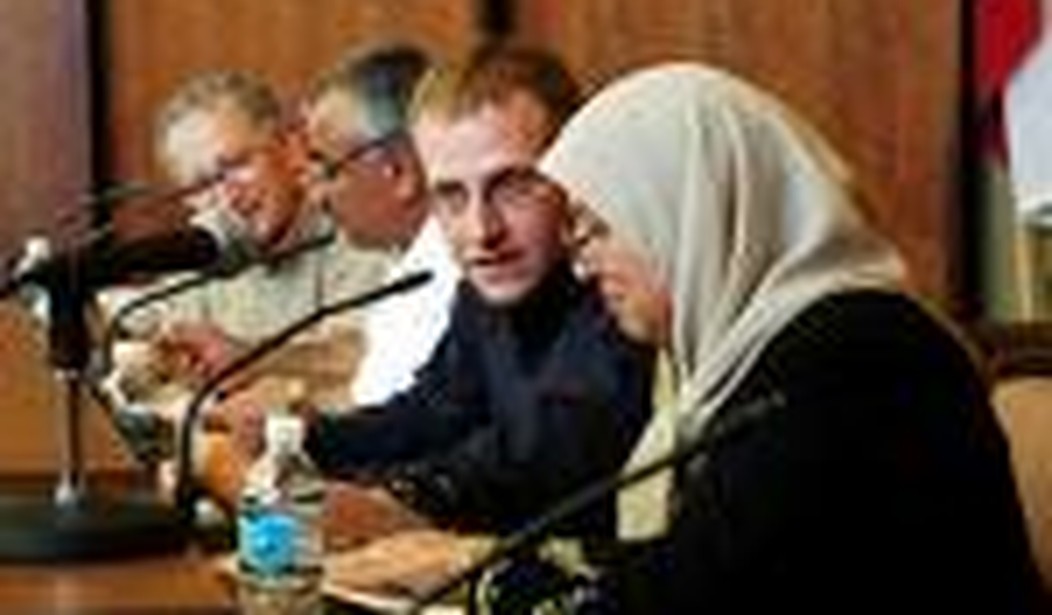Does a Congress that has failed in 63 attempts to cut funding for the Iraq War really want to use the progress of their peers in the Iraqi parliament as a bellwether for success?
Congressman John Murtha shocked many people with his admission last week that “I think the ‘surge’ is working” in Iraq. The Pennsylvania Democrat, long a critic of the war, stated in July that any perceived success that resulted from the buildup of 30,000 additional troops was “delusional.”
A day after Murtha’s recent surge declaration, he tempered his comments by indicating that military success did not translate to a better overall situation in Iraq:
The military surge has created a window of opportunity for the Iraqi government,” Murtha said Friday. “Unfortunately, the sacrifice of our troops has not been met by the Iraqi government and they have failed to capitalize on the political and diplomatic steps that the surge was designed to provide.
Murtha’s supposition-that the Iraqi Parliament must achieve paper reconciliation there to be a success-is a position shared by many politicians, including Democratic Senate Majority Leader Harry Reid. Despite another month registering declining levels of violence against both civilian and military forces, Reid still insists “…We’re involved, still, in an intractable civil war.”
It seems a shared belief that there can be no success in Iraq without the Iraqi parliament meeting a set of political goals. These American politicians seem unable to grasp the concept that without popular support, a reconciliation among their counterparts in the Green Zone is irrelevant: the politicians in the Green Zone are all but irrelevant to how people live their lives in the rest of the country.
It is between neighbors and in neighborhoods in Iraq that reconciliation must develop, and it is on this level that reconciliation is occurring. Examples can be found from Ramadi to Fallujah to Baghdad. Baghdad’s Ameriyah neighborhood provides us with just one example of localized and meaningful reconciliation in progress.
It was not very long ago that American soldiers faced off against al Qaeda terrorists, Islamic Army insurgents, and Shia militias in this mostly Sunni neighborhood. According to a U.S. commander, close to ten-percent of all U.S. KIAs in Iraq during the month of May came from just four square kilometers of Ameriyah.
The darkest day was May 19, when a massive IED detonated beneath a Bradley IFV, killing the six soldiers and the interpreter inside. There was talk among the soldiers of wanting to do “a Fallujah” in Ameriyah, an assault to clear out all resistance.
Cooler heads prevailed.
Over time, Ameriyah residents-community leaders including tribal sheiks, imams, civil servants, doctors, lawyers and even insurgents-grew tired of al Qaeda’s attempts to brutally impose their brand of sharia law. One of those former insurgents, a former Army major in pre-war Iraq, Abu Abed, now leads the Forsan al-Rafaidan, or “Knights of the Two Rivers.” The “Knights” are a militia force hoping to gain employment as Iraqi police officers so that they can continue to protect their community. Working in conjunction with 1-5 Cavalry and an Iraqi Army battalion they have been very successful to date. Because of the intermeshed security framework, violence in Ameriyah has dramatically decreased over the past months.

Lt. Gen. Ray Odierno, commander of Multi-National Corps – Iraq, greets Abu Abed, leader of the Knights of the Two Rivers, a Concerned Local Citizens group based in Baghdad’s Ameriyah neighborhood, Nov. 30. (U.S. Army Photo by Staff Sgt. Curt Cashour, MNC-I Public Affairs)
It has now been since August that an improvised explosive device detonated in Ameriyah.
LTC Dale Kuehl, commander of 1-5 Cavalry in Ameriyah, credits the synchronization of security forces and the combined efforts of unofficial and official civilian leadership with the developing success:
We meet on a regular basis. About twice a week I meet with LTC Wail (the new commander of 2/1/6 IA and a great officer) and Abu Abed for a morning update. It gives us a chance to get a common picture of the area and discuss any issues that may have come up. We also hold weekly targeting meetings with the staffs from 2/1/6, the Forsan and 1-5 CAV. On Friday’s we have a synchronization meeting to discuss the upcoming week. The sharing of intelligence has allowed us to be more effective in targeting. So effective that most of our targets have left Ameriyah and those that come in often find they are rolled up pretty quickly.
On the civilian side, Sheik Khaled has developed a local council that includes imams, tribal Sheiks, civil servants, former officers, doctors, lawyers and other professionals. While this council is not an official part of the government, it has demonstrated great capability in developing consensus on priorities for the community and assists us in fielding complaints against the security forces (Forsan, IA, and CF). Khaled is working to tie this group to the Neighborhood Advisory Council which has been only marginally effective and does not have much support from the populace. What Khaled has done is bring a broad spectrum of the society together to have a say in the future of Ameriyah. This attacks another underlying cause of the Sunni insurgency which is the disenfranchisement they feel towards the government. At least in Ameriyah they feel like they have a voice.
Such voices matter.
Democrats are now attempting their 64th attempt to defund the Iraq war…by using the progress of the Iraqi parliament to gauge the progress of the country.
They should be thankful the same standards aren’t applied to them.
Bob Owens blogs at Confederate Yankee.









Join the conversation as a VIP Member